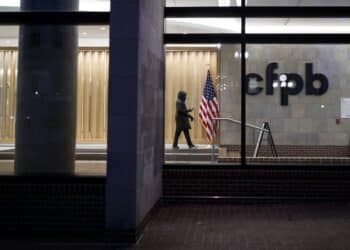Goodbye, Arbitration Clauses?

Creditors adopted these arbitration agreements because such an agreement could include language banning class-action relief. Creditors had long objected that the class-action mechanism gave consumer lawyers an unfair advantage ― if a consumer’s complaint survived the creditor’s motion to dismiss and the court certified a class, the game was over. No creditor wanted to “bet the company” on a class-action trial, so the cases quickly settled, usually on terms that mostly benefitted the lawyers supposedly representing the class. Arbitration clauses prohibiting class relief took this blackmail tool away from the class-action lawyers.
For the most part, the arbitration agreements performed as advertised. Class-action lawyers challenged the enforceability of the agreements in case after case, usually arguing that the clauses were “unconscionable” and should not be enforceable. As courts rejected their arguments, the lawyers came up with new theories. Users of arbitration clauses over time revised the terms of the clauses to meet each new theory.
For the most part, the courts have upheld the enforceability of arbitration clauses. Frustrated by the inability to successfully challenge the use of arbitration agreements in the courts, the critics of arbitration turned to Congress.
For years, the anti-arbitration crowd has been railing against the use of these arbitration clauses in consumer financing contracts. They were successful in having several congressional bills banning the use of arbitration clauses introduced in Congress, but had no luck advancing the bills to enactment.
Then along came the steamroller called Dodd-Frank. The trial lawyers and consumer advocates tried to append an outright ban on arbitration to DF as it plowed through Congress. They were unsuccessful, ending up with only the Dodd-Frank mandate to the Consumer Financial Protection Bureau to study the topic and take action on its findings, up to and including a “license to kill” the use of arbitration altogether.
The CFPB is gearing up to take action on arbitration clauses. So far, the bureau’s activity has been limited to issuing two reports of studies it has conducted on the topic, and we haven’t yet seen an outright ban on the use of arbitration. But make no mistake, one is on the way.
There was a brief moment of hope that arbitration might survive when the bureau’s second report said that: in many class-action cases, where the principal purpose of seeking class relief is to pressure a settlement, members of the class got nothing or next to nothing; class-action cases almost never make it to a trial on the merits, while a significant percent of arbitration proceedings actually resolve the disputes of the parties; and arbitration is both faster and more economical than litigation.
That glimmer of good sense quickly disappeared under the weight of a lot of discussion by the bureau of the advantages of class-action lawsuits. The report also did not discuss the public policy implications of the use of arbitration clauses evidenced by the enactment of the and of arbitration laws in nearly every state, nor did it dwell on the hundreds of court opinions rejecting the unconscionability arguments of the class-action lawyers. Those observations would not have advanced the bureau’s agenda.
A prediction? I’ll bet my favorite rod and reel that the bureau has bought the rope, measured it, tied the noose, found the tree, and dug the grave for arbitration. Now all it needs to do is give it a fair trial.
This column originally ran in the June 2015 issue of Auto Finance News.
Tom Hudson is a partner in the Maryland office of Hudson Cook LLP. He has written several books, and is editor-in-chief of CarLaw, a monthly report of legal developments in all states for the auto sales, finance, and leasing industry. He can be reached at 410-865-5411 or tbhudson@hudco.com. Nothing in this article is legal advice and should not be taken as such. Please address all legal questions to your counsel.














